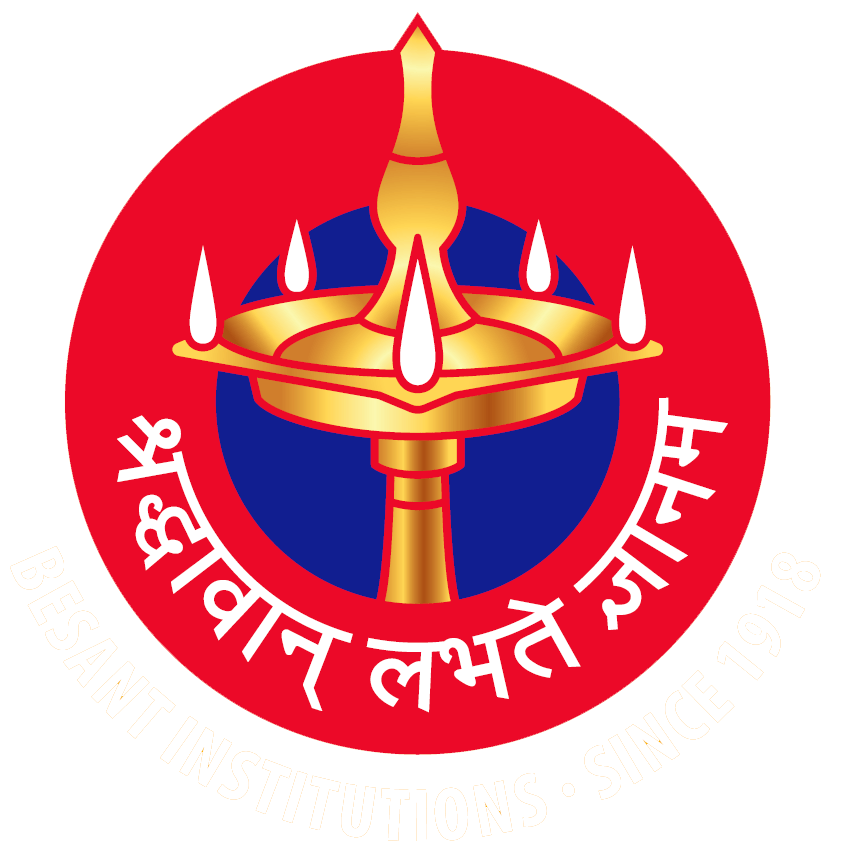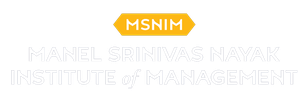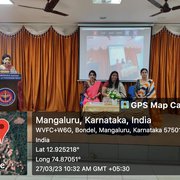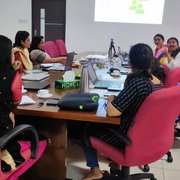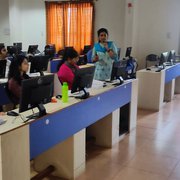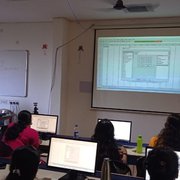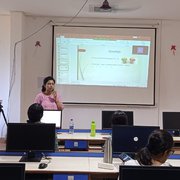Faculty Development Programme 2023
Event Name: 5-Days Faculty Development Programme on How to Write an Effective Manuscript to a Scopus Indexed Journal (Hybrid mode)
Date: 27.03.2023 – 31.03.2023
Workshop for Scholars specializing in any area of HR, marketing, finance and social sciences are eligible to participate in the workshop. Scholars pursuing Ph.D./M.Phil. programs, who are at the stage of drafting research design and data analysis. Faculty members engaged in funded research projects and wishing to master statistical techniques.
Program Schedule:
Day 1 (27.03.2023) - Introduction to reviews, Introduction to evidence synthesis, systematic reviews and bibliometric data analysis, Scoping review.
Resource-person – Mrs. Tantri Keerthi Dinesh and Ms. Komal Jenifer D’Souza, Department of Commerce, MAHE, Manipal
Day 2 (28.03.2023) – Structuring Manuscripts and Research Ethics
Resource-person - Dr. Ankitha Shetty, Assistant Professor - Senior Scale, Department of Commerce, MAHE, Manipal
Day 3 (29.03.2023) - Qualitative research with hands on training
Resource-person - Ms. Melanie and Ms. Pooja, Department of Commerce, MAHE, Manipal
Day 4 (30.03.2023) - Quantitative data analysis part I using SPSS – How to enter data in SPSS, data cleaning and imputation, descriptive statistics and correlation.
Resource-person - Dr. Shilpi Saha, Assistant Professor, Manel Srinivas Nayak Institute of Management
Day 5 (31.03.2023) - Quantitative data analysis part II using EFA, ANOVA and Regression.
Resource-person - Dr. Shilpi Saha, Assistant Professor, Manel Srinivas Nayak Institute of Management
Words of Mrs. Tantri Keerthi Dinesh and Ms. Komal Jenifer D’Souza (Day 1)
They said “A researcher should begin with identification of meaningful topics and research questions, researchers should choose research projects on subjects on which they are knowledgeable, and already have a preliminary idea of what the answers to the research question will be. To checking existing reviews and protocols, identify research questions, develop strategy and analyse the results.” They briefed about scoping reviews and the steps involved in writing scoping review paper.
Dr. Ankitha Shetty (Day 2)
She has focused on the barriers of research and how to overcome them effectively, the different entities supporting research and providing grants. She has emphasized on the novelty of choosing a research topic that can help in publishing the research with Scopus indexed journals. She has posited her views on predatory journals and ways to avoid falling for such journals. “Referring to Scopus database journals can be an effective way of choosing quality journals for publishing research articles,” said the researcher.
Ms. Melanie D’Souza and Ms. Pooja (Day 3)
As researchers who often work with qualitative data, we are frequently asked to review qualitative papers and to speak about how to conduct qualitative research. Through these experiences, we believe that there are prevalent misconceptions about the range of roles that qualitative data can play in research on strategic organization. Most frequently, an assumption is made that qualitative data should only be used in areas of nascent theory. Less frequently but equally problematically, an assumption is made that qualitative data should only be used when researchers are employing an interpretive perspective. We argue that these assumptions about the roles of qualitative data are excessively narrow and have led to several unfortunate consequences. For example, many authors justify their use of qualitative data by arguing that there is a lack of prior theory in their domain of interest – even when this is not the case and when they may be using qualitative data for other, entirely legitimate reasons. Hence, Ms. Melanie and Ms. Pooja emphasized on the use of various types of qualitative data analysis like Atlas software, case study, ethnography, grounded theory and narrative inquiry while exploring new areas of research.
Dr. Shilpi Saha (Day 4)
Dr. Shilpi explained about the different types of variables. The words “independent” and “dependent” could puzzle the beginner because it is sometimes not clear what is dependent on what. This confusion is a triumph of common sense over misleading terminology, because often each variable is dependent on some third variable, which may or may not be mentioned. She taught in detail the process of coding responses and entering them in the SPSS software, the method of checking the responses, performing preliminary analysis like descriptive statistics and correlation.
Dr. Shilpi Saha (Day 5)
Dr. Shilpi explained that using a one-way ANOVA when one has responses about one categorical independent variable and one quantitative dependent variable. The independent variable should have at least three levels (i.e. at least three different groups or categories). ANOVA tells if the dependent variable changes according to the level of the independent variable. Correlation describes the strength of an association between two variables, and is completely symmetrical, the correlation between A and B is the same as the correlation between B and A. However, if the two variables are related it means that when one changes by a certain amount the other changes on an average by a certain amount. Dr. Shilpi explained about regression analysis in SPSS.
Participants: 14 Faculties of 6 colleges from in and around Mangalore and other states participated.
Functionaries:
Welcome Address: Dr. Molly S. Chaudhuri, Director, Manel Srinivas Nayak Institute of Management.
FDP Co-ordinator: Dr. Shilpi Saha, Assistant Professor, Manel Srinivas Nayak Institute of Management.
Briefing about FDP – Dr. Shilpi Saha, Assistant Professor, Manel Srinivas Nayak Institute of Management.
Vote of Thanks: Dr. Molly S. Chaudhuri, Director, Manel Srinivas Nayak Institute of Management & Dr. Shilpi Saha, Assistant Professor, Manel Srinivas Nayak Institute of Management.
List of Participants
- Ms. Niveditha - St.Aloysius College (Autonomous), Mangaluru
- Ms. Jennifer Maria Quadras - St.Aloysius College (Autonomous), Mangaluru
- Ms. Kirti Anil Aswani - HSNC University
- Dr.P.A.SATYA VARDHINI - THE OXFORD COLLEGE OF ENGINEERING
- Ms. Prathvi Deeksha - Mangalore University
- Mr. Jayaprakasha.K - Mangalore University
- Ms. Prathiksha Baliga - Department of Commerce, MAHE, Manipal
- Ms. Krithika Rao - Department of Commerce, MAHE, Manipal
- Mr. Akshathraj Jain – Mangalore Institute of Technology and Engineering, Mijar, Moodbidri
- Ms. Swapna Shetty – A J Institute of Management
- Dr. Purushothama K V – Pompei College Aikala
- Dr. Vasappa Gowda – Pompei College Aikala
- Mrs. Ashitha J. – Pompei College Aikala
- Ms. Jinsa Joseph – School of Social Work, Roshni Nilaya
